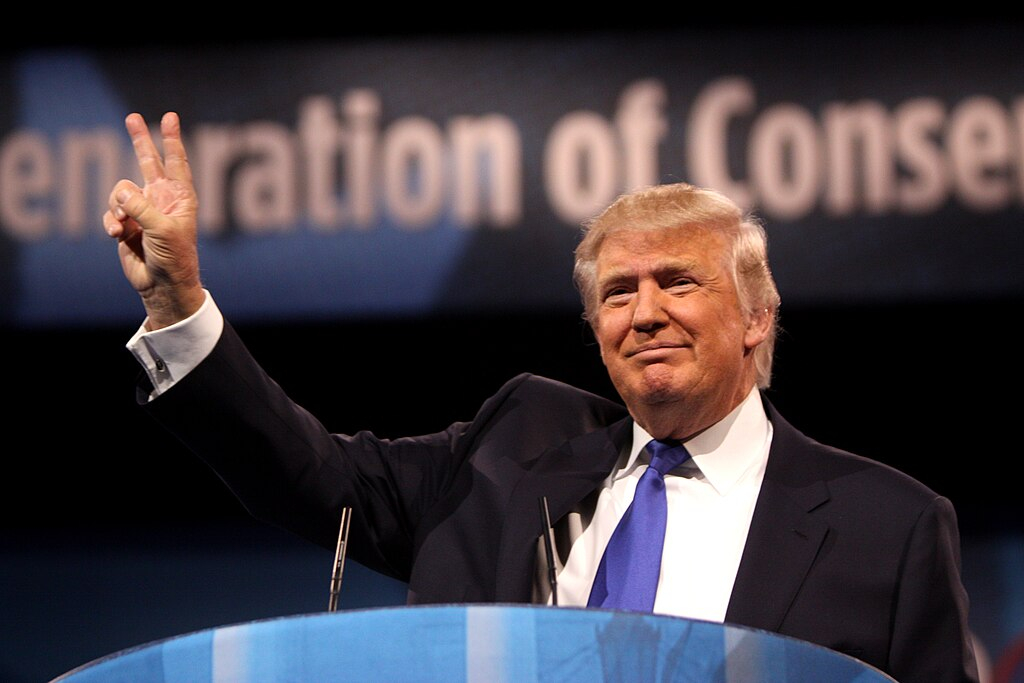President-elect Donald Trump speaks in extremes. If he wants to distance himself from someone in his orbit, he’s “never heard of him.” When talking up the executive orders he plans to issue on his first day in office, he used a recent favorite tic of his, crowing that they’ll be “like nothing you’ve ever seen.” And when claiming his electoral win earlier this month, Trump declared that “America has given us an unprecedented and powerful mandate.”
But the further we’ve gotten from Election Day, the less credible Trump’s claim to a historic win has become. Despite that increasing clarity (or perhaps because of it), his allies have gone into overdrive in claiming a massive mandate for Republicans to do whatever it is Trump wants to do over the next four years. The underlying message to Americans: Whatever comes next, it’s exactly what you asked for — so there’s no use in complaining.
Trump’s campaign has been calling his popular vote win, the first for a Republican since 2004, a “landslide” that grants him an “historic mandate” from the masses. Instead, his popular vote lead has instead been shrinking as more votes have been tallied. He has not won a majority of the country’s votes, according to the most recent tally from NBC News. And much of the data available shows that Trump’s win likely had more to do with people opting to stay home this year than a massive swing in his favor.
Moreover, Trump’s “unprecedented” win is in, in fact, very precedented. The New York Times’ Peter Baker rightly noted that his roughly 1.6% win over Vice President Kamala Harris is one of the smallest margins of victory since the 19th century. There’s nothing special about 2024’s results compared to Joe Biden’s 4.5% win in 2020, let alone Ronald Reagan’s double-digit blowout in 1984.
Trump’s team prefers to compare his win to Bill Clinton’s victory in 1992, as they did in an email blasted out to reporters on Friday. Clinton benefited from a three-way race against incumbent President George H.W. Bush and eccentric billionaire Ross Perot that let him win the Electoral College with only a plurality of the votes cast. He then used his 43% popular win to claim a mandate for change, having toppled Bush and ending 12 years of Reaganite policies.
Narratively speaking, Clinton’s claim makes total sense. But voters, in all their wisdom, have fallen into a strange cycle: They will support the presidential candidate deemed most likely to represent change, only to move quickly to punish them for any sign of hubris. Every new administration since Clinton has seen its party hold a trifecta in Washington during its first year in office and claim a mandate to shake things up. It has not fared well in most instances.
Clinton’s attempts to enact major reforms to health care backfired to the point that he spent the next six years triangulating his way into serious cuts to the social safety net. President George W. Bush saw a wider margin of victory in his 2004 re-election campaign and held onto Congress. But he was still left reeling politically after attempting to privatize Social Security in 2005. President Barack Obama managed to push through the Affordable Care Act, but the public response to that success provided him with a hostile Republican Congress for the final two-thirds of his tenure.
In each of those cases, the election winner won a larger margin in the popular vote than Trump did. Arguably, none of them had policy proposals — proposed or enacted — that did more to disrupt the status quo than what Trump has in the works. It’s a big bet on the idea that Trump (or Republicans generally) will face no repercussions for taking a hard turn to the right then flooring it to the far edges. Trump’s selection of Cabinet members offers sufficient evidence that he has no eye toward coming off as moderate or restrained.
But the Pew Research Center’s polling hasn’t found a massive surge in support for his policies. A survey conducted in the week after the election found only a small majority — 53% total — are picking up what Trump is putting down. That includes 27% of respondents who say they “strongly approve of his plans and policies for the future” and 25% saying they somewhat approve. But when you drill down into the details of Trump’s plans on immigration, for example, the illusion of a “mandate” evaporates as the supposed popular support erodes.
The muddled, middling nature of Trump’s claim to a mandate only exacerbates the uncertainty of how far he’ll be able to push the country without backlash. Political scientist Julia Azari recently wrote that presidential claims to a mandate aren’t always successful but have “historically been connected to unprecedented expansions of presidential power. This could be a recipe for overreach, as it often has been for modern presidents. Or it could be a way to give an unchecked executive the veneer of following the popular will.”
The latter is surely what Trump’s incoming loyalists are counting on, as they prepare to enact any number of draconian budget cuts or human rights violations grounded in the supposed approval of a majority of Americans. The same goes for the Republican lawmakers who seem willing to cede all authority over spending or keeping the White House from overstepping its bounds. But the blank check from voters that Trump is trying to cash is a forgery that can’t be allowed to be deposited into our collective memory bank. The will of Donald Trump should never be confused for the will of all Americans.
This article was originally published on MSNBC.com















